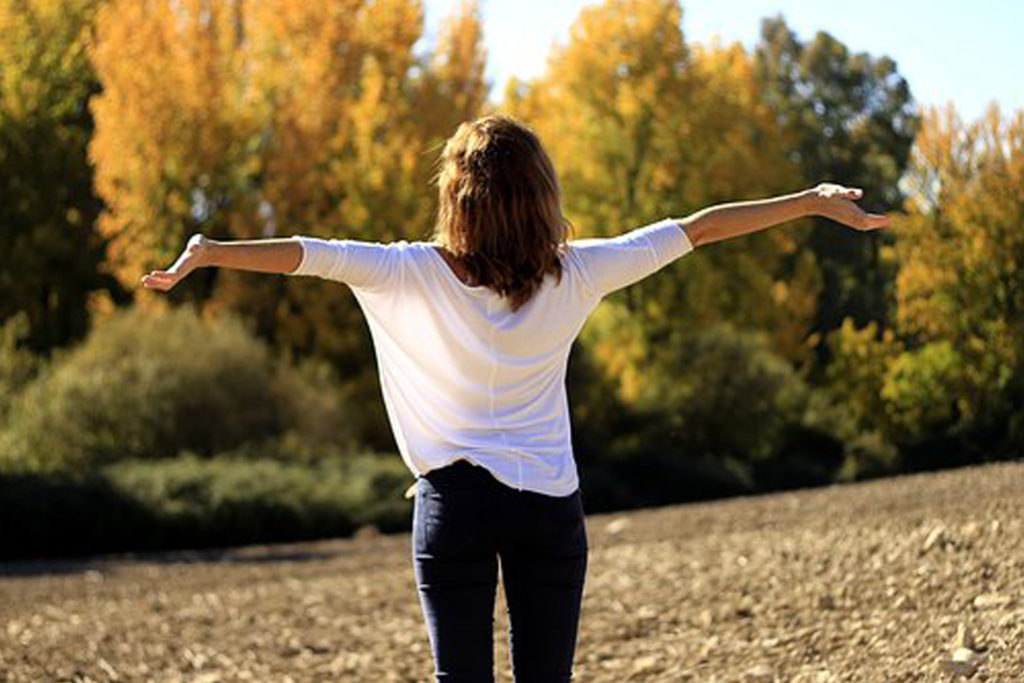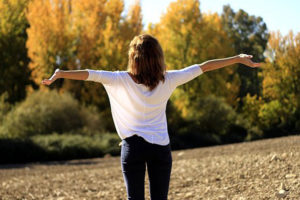Not long ago, someone I know needed help. I got a phone call that stopped me in my tracks. It was like time stood still and my lungs quit working as my mind spun.
My whole body was shaking. But I needed to respond, to find a way to help. I needed to be in the moment and I needed to be strong.
This moment was breath-taking – but not in the way we generally use that term.
I had literally lost my breath and I had to dive deep to find it. I needed to breathe in order to take the next right action. Fear has the power to make us feel breathless in a crisis, and it certainly had control over me at that moment.
Emotions have a very real effect on the body
Those feelings of panic and fear are a memory now, especially since the crisis passed and everything turned out ok in the end.
You know the phrase “paralyzed with fear”? I really was in that moment, and I only realized that when I began to consciously breathe and recover.
But, what I remember most vividly is trying to get my breath back after I hung up the phone. I had to will myself to breathe. I consciously took a minute to move my diaphragm and bring air in and out of my lungs. Soon, though I was still shaky, my body could actually move again.
When I had calmed my mind and body enough, I was able to do something to help. While the breathing didn’t make it all better, it made it possible to move forward.
Unfortunately, life hands us these breath-stealing moments. You get a phone call when something terrible has happened. You’re up all night worrying over something you can’t change. A memory or smell triggers a traumatizing event from your past. A sudden change means that our peaceful world will never be the same.
For me, and many of my clients, some level of peace returns with the breath. Something very powerful happens when you tune in, listen closely to the body and deliberately make the choice to breathe.
The other kind of breath-taking: Awe
Shortly after this event, I spent a weekend away in the mountains. It was the peak of the fall season and my husband and I had been looking forward to this trip for a while. Stunning colors of red, yellow, and orange fell all around me, making a carpet on the ground that rustled loudly as I walked through. It was the most peaceful, beautiful place I had been in quite some time.
Yes, it was breath-taking. Witnessing this moment of intense beauty made me stop breathing. I was paralyzed with wonder and it took a minute to find my breath again.
The recent past was still on my mind and I was struck by the contrast of fear and awe that existed within me. It was the tremendous contrast between pain and love. Of course, this moment of beauty didn’t take away the difficulty of the week before. It did, however, inspire me to be in the present. The glory of nature invited me to remember that we need to slow down, listen, and breathe in moments of bliss as well as in moments of panic.
In moments of panic and in moments of bliss: always remember to breathe
Breathing. You do it every day, all day. It is an automatic function of the body that is controlled by the center of the brain. So why is it so important when dealing with stress and the practice of self-care?
When you ’re stressed or scared, your breathing changes and goes into the fight or flight mode. The lungs unconsciously absorb oxygen and release carbon dioxide. In such a state, you lose control of your own breathing. And, in such moments, you also realize you just can’t quite get your brain to work.
During a crisis, the brain recognizes something as a threat, and any energy you usually have for thinking goes toward activating your stress hormones, minimizing cognitive processing and making it hard to think straight. You forget that you have the ability to affect your own body to bring yourself back to a place of calm.
On the other hand, when you stop and take time to breathe and purposefully fill your body with new oxygen that actually helps your brain. You become more calm, which leads to more focus. It helps to lower blood pressure and heart rate. It reduces stress hormones in the blood and increases physical energy. Controlled breathing can also improve concentration, the functioning of the immune system, flexibility and strength of our joints, metabolism, and circulation.
So, next time you are faced with a moment of panic or a moment of bliss, remember that your breath is your greatest ally. You’ll automatically become more present and become able to deal with the challenges or simply soak in the beauty of the situation.
There are many ways to do deep breathing, but my clients and I agree that one particular technique tends to work best. I regularly teach this technique to help people sleep, de-stress, and cope with anxiety and panic.
The simple 6 step breathing exercise:
- Find a calm, quiet place to relax
- Sit in a comfortable position
- Pretend your belly has a balloon in it
- Inhale into your belly balloon to the count of 4
- Hold the breath for a count of 2
- Exhale breath for a count of 6
- Repeat
Do this whenever you need to become present in your surroundings. Practicing this for five to ten minutes a day will help you reduce stress at the physiological level and also help to calm any anxious thoughts.
Of course, there are some painful events that cannot be healed by the breath alone. Let’s talk about how counseling can help you navigate the challenges and changes in your life.

